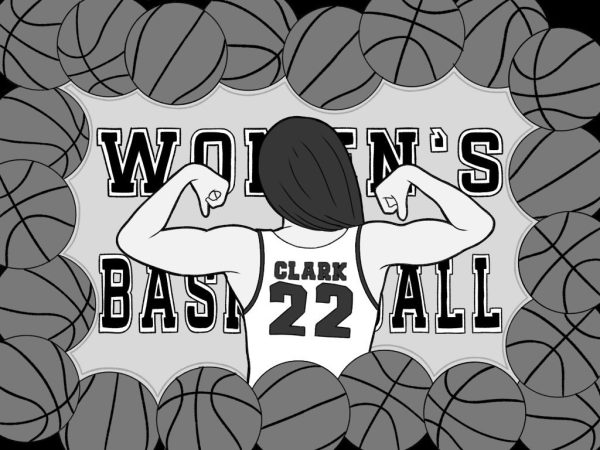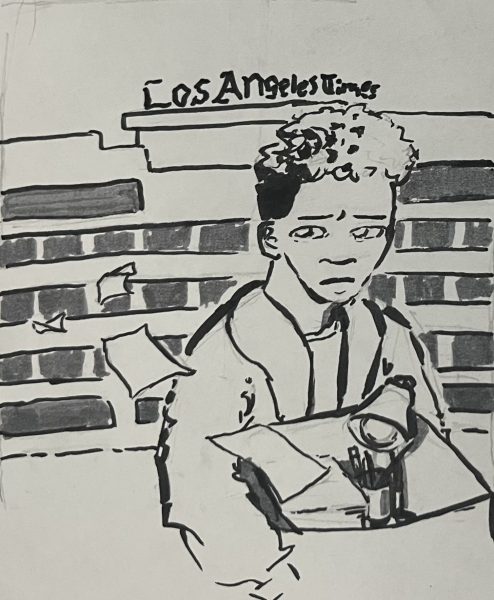Applying for College: Expectation vs. Reality
May 27, 2022
College—the place all parents hope their kids end up. It’s the checkpoint we’ve been working for since the second we entered elementary school.
We’ve heard all the speeches, and watched all the high school teen movies about college, yet preparing for college feels like a mess.
Honestly, the mess starts with just deciding whether to go to college. Community colleges, four-year universities, trade schools—all these options greatly depend on the career you want. There’s also deciding what you even want to do with your life. Life is messy, yet you need to have at least some of it figured out at the age of 17. No pressure.
I wasn’t going to go to college, but at the very last minute decided why not. That was a huge mistake. Don’t be like me.
Applying and preparing for college is nothing like the movies show, and what you’ve been told over the years was just scratching the surface. The expectations versus realities of preparing for college felt like a whirlwind. I hope this helps you prepare before you become a senior fighting for an appointment with your college counselor.
Choosing to Go to College
The first, and most obvious, step into the college prep process is choosing whether you want to go to college or not. Some careers require you to have at least some college degree, but some don’t require college at all.
Aside from continuing your education, you can make connections that can help your career later, and learn life lessons and skills. If you’re going for a more nontraditional or artistic major, going to college can help you develop connections that are important in finding a job, internship, and more.
There are a lot of routes life can take you. Whether your path leads to college or not, make sure you are prepared for what life can throw your way.
Making College Plans and Applying for Colleges
If you’re still reading, I assume either your path is heading towards college or you’re strongly considering it. Cool. Here’s where it can start to get messy. Hopefully, by now you have chosen a major. It’s fine if you haven’t, that’s what community college is for.
Community college can be beneficial if you’re not too sure what you want to do yet. Even if you know what you want to do, community college can help you prepare for your future major and give you time to save money for your transfer. You can still get certificates or an associate’s degree to start off.
If a four-year college is what you want, then start finding what’s best for what you want to do in the future. Some schools have a more well-known name, but they may not have the best courses for your major. Look for what fits what you need. Don’t be afraid to take a gap year if necessary and realistic for you.
Financial Aid
Financial aid is one of the most important things to keep in mind when applying for college. I learned the hard way how hard it actually is to get financial aid. My naive mind thought just applying for college would be free.
Wrong. I paid about $250 for just three colleges.
Depending on your income, you may get fee waivers which do make your applications free. Unfortunately, I and others weren’t eligible for them resulting in out-of-pocket payments for applications.
The absolute most important thing when applying for financial aid is F.A.F.S.A. F.A.F.S.A. is the Free Application for Federal Student Aid which goes into the nitty-gritty of your parent’s finances (and yours if your work). If you want any sort of aid, F.A.F.S.A. is your ticket for it.
Some private schools have you do something called a C.S.S. Profile. It’s pretty much the F.A.F.S.A. except you may have to pay for it (another game of are you eligible for fee waivers or not) and it’s even more in-depth than the F.A.F.S.A.
Another important thing, financial aid is more than just loans. It also includes grants, work-study, and scholarships. One thing to keep in mind is that there are scholarships everywhere. The college center on the top floor of the main building always has information about the biggest monthly scholarships.
Websites such as Fastweb also provide access to many scholarships that range from small sweepstakes to big essay scholarships. There’s a lot of scholarships out there, it’s just a matter of looking.
Loans are a tricky topic. There’s so many different types of loans that contain different factors that can make some scarier than others.
No matter what route you take with your financial aid, I for sure wish you all the best.
The Wait, Acceptance, and Rejection
Ah yes, the most fun part of college applications: the waiting. Waiting to hear back from your top choice, your reach schools, or the schools you and your friends applied to is a very anxiety-inducing time for obvious reasons.
The most important thing to remember is that no matter the outcome, you will end up where you’re supposed to be. It can be hard to deal with the sting of rejection, but it won’t last, you still have options.
Not getting into your dream school sucks, I’ll be honest, but you can always go to a community college and transfer there. If not, you always have the other universities you were accepted into. It may not seem like it at the moment, but when one door closes another one will open. Keep your options and opportunities open. You never know what you’re going to get.
Committing to a School and Final Thoughts
The semi-final mark in your college application journey is committing. It’s one of the most satisfying things, finally saying yes to a school and knowing that the next steps are laid out for you.
Although it may seem like you’re done here, there’s still work to be done. I’d say these next steps depend on where you’re going to college. Albeit, colleges will typically have you do placement tests for English and Math as well as decline/accept financial aid they give you. You’ll figure it out, as I’m currently doing as I write this article.
Applying for colleges can be very stressful and difficult, especially while dealing with senior year, but you’re not alone. You’ll have a college counselor to help you along the way, but you have to also be on top of it. Make sure you have everything you need and ask questions whenever you have them. If someone can’t tell you the answer, find it yourself.
It’s tiring, but the outcome of the process makes it all worth it. Even if things don’t turn out the way you planned there’s always something positive to come of it; it’s just a matter of making the most of things. You all got this!










